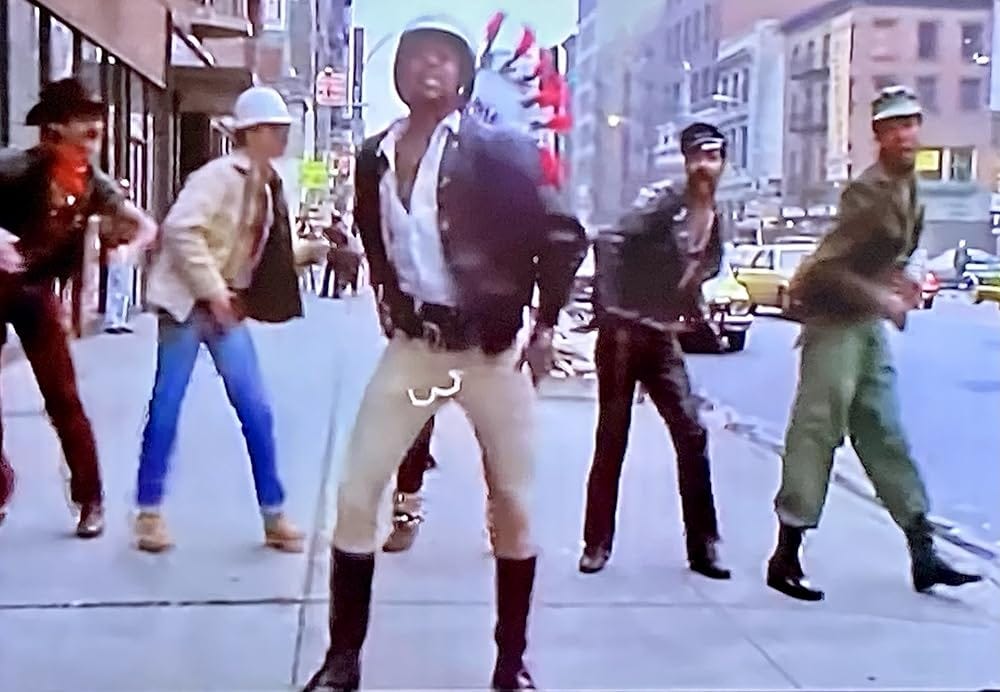Not in Our Timeline
On grief, leaving, and the slow unlearning of some of the myths that bind us*.
I sometimes say that my wife and I always wanted to live abroad—and that’s true. But it’s also true that we had a whole life envisioned in America. We made plans, built careers, invested in a community.
We believed in that path, or at least in the version of it we thought was possible. Some of it we chose consciously; some of it we inherited without questioning. But that version of life that we counted on doesn’t exist anymore.
And—realizing that doesn’t happen in an instant. It’s something you slowly come to understand, especially when you’re standing in a very different system, in a very different country, like France. It takes time to notice what you’ve let go of - and what you haven’t.
There are different levels of understanding: you can understand a thing intellectually, but then to know it and to be able to act from that knowing…? Well, that understanding and that knowing can remain very far apart for a long time.
This is another one of those pieces I’ve had trouble pulling together, so apologies if it’s not quite flowing from one thought to the next. It’s a piece about my low-grade grief about the U.S., the hangover from our departure, and the realization before we left that the life we were building just wasn’t going to work out.
K
The reasons had been there for a long time, hiding in plain sight. But we kept brushing them off, thinking maybe we could work around them.
Maybe things would shift.
Maybe we could bend the system just enough to make it work. Maybe we would be the exception for what seemed like the rule. We’d be the lottery winners.
But eventually, it became clear: the cracks weren’t temporary. They were structural.
We had to make a choice—not out of bitterness, but out of honesty.
Leaving wasn’t the plan for us either
W. A. Finnegan wrote about his plans to leave the United States - he’s still near the beginning of his that process. It’s the kind of move a lot of people talk about, but few actually make.
His piece, “Leaving Wasn’t the Plan,” is a personal reflection on the grief, guilt, and clarity that come with realizing the country you once believed in may no longer be safe—or even salvageable. From his own description, this is a man that has a lot more dealing with the inner workings of the US government than I ever have, but his reflections are honest and sharp: the post is well worth reading.
We didn’t set out to leave either. We had jobs we believed in, communities we cared about, and plans we were still trying to make work.
But we left 4 years ago and the U.S. didn’t feel safe then—and it feels even less so now.
doing right isn’t doing enough
It took time to feel at home here—but not because of France. It was about letting go of what “home” meant in the U.S. I’ve traveled plenty, but this was different. Before, home was always waiting.
We’ve detached from that. And we knew, before we left, that we weren’t going back.
There’s a slow, sinking realization - not just that you’re leaving, but that the life you planned can’t happen, not here, not like this. Then there is this whole new level of it changing completely, a perversion of government itself.
One of the most dangerous things about these people is the combination of arrogance, incompetence, and deep-seated racism—paired with the delusion that destruction itself is a form of leadership. It’s not ideology; it’s nihilism.
And the only reason it hasn’t spiraled further is because there are still systems in place to resist it. But once those break down, what follows isn’t freedom—it’s open theft, unchecked exploitation, and free rein for those who thrive on cruelty.
I Love America, Patrick Juvet - 1978
I Love America is a 1978 disco hit by Swiss artist Patrick Juvet, co-written with composer Jean-Michel Jarre after Juvet moved to the US to immerse himself in the disoc scene. The song sold over 250,000 copies in France and charted in the Top 20 of Sweden, the UK & France – but not in Switzerland…
It’s also one of the least funky-sounding uses of the word “funky” I’ve heard - a competitive category. The lyrics were co-written by Victor Willis, the lead singer of the Village People and many of Juvet’s later pieces were produced by Jacques Morali.
am I overreacting?
I don’t know why I feel like I need to dial things back a bit. In case I’m wrong? I would like to be wrong.
No matter how cynical I may have ever seemed, I did once have faith: in the U.S., in my career as a teacher, in the neighborhood we built a life in.
The career I imagined—a meaningful, stable path in teaching with room to grow and retire from—just wasn’t possible.
What worked for my parents didn’t work for us.
The things they believed, and taught me to believe (and some of that stuck), just aren’t true anymore.
And we had what was considered a "good" job: health benefits, a retirement plan, paid vacations - the whole package.
I believed in it. I worked hard.
It was never easy, but for a long time, it felt worth it.
I once compared it to being in a sailboat on the ocean. You can have the wind at your back, set your sails just right, and still find yourself drifting somewhere entirely different.
You’re doing everything “right,” but the ocean itself is moving against you.
guns show
Something is newly broken in the U.S., but the cracks have been there a long time.
For years, we’ve papered over structural failings with borrowed optimism and the illusion of stability. But at a certain point, the seams give way.
I don’t think the next election will fix it. I hope so, but that is now a long way away.
I’m not even sure the systems we expect to carry out the fix are still functioning as intended. They’ve been undermined, reshaped, or hollowed out.
And yet, when people talk about collapse or “revolution,” there’s often a romantic streak in the language—a sense of catharsis, of justice finally arriving.
But revolutions, historically, are rarely that clean. Typically, they result in violence, power vacuums and opportunists, not visionaries, taking over again.
As I’ve said about my time in education: things weren’t fine in February 2020.
The day before they told us schools were closing for COVID, we had an active shooter drill - one of those mandated safety drills (4x each year) where we locked the doors, turned out the lights, and sat in silence with our students—so they could quietly imagine what they’d do when someone showed up to kill them, most likely with a legally purchased assault rifle.
Whether it ever happens or not, we made them rehearse it.
I once taught my students how to make fart noises with their hands (quietly) just to cut the tension. We also traded euphemisms : passing gas, cutting the cheese, letting one rip, tooting, squeezing the duck. “Moving furniture downstairs” was a favorite from the kids.
Educational, in its own way.
It felt like a better use of the time.
Of course, I later got written up when several students started doing it in another teacher’s class and proudly said I taught them—during a shooter drill, no less.
That was a notable letter in my file.
Middle schoolers are terrible at keeping secrets.
I read recently that 1 in 3 Americans knows someone who’s been in a mass shooting. More than half have experienced some form of gun violence. I’ve been shot at. My wife hasn’t.
So statistically, we’re right on track.
The shooter drills, as insane as they are, make some kind of sense. Statistically speaking, you’re much more likely to get shot at than to get caught in a house fire in the US.
We could have chosen to fix things, to change things, to chart something new, but instead there is this idea of “back to normal.” Normal was pretty fucked up.
And now, this is not even that old sense of “normal.”
“It’s not like you suddenly hate your country. That would be easier, honestly.”
W.A. Finnegan
Nostalgia is poison.
What’s happening in the U.S. right now is different.
In a healthy system, this kind of thing would not be possible. Yes, it’s been a long time developing, but also yes: this is different, more reckless, more extreme, and so on.
We could name names, list individual actions, trace the scandals and speeches—but it’s bigger than that. It’s the ocean itself that’s shifting. The very boundaries of what’s possible, of what’s allowed to be possible, are moving in the wrong direction.
I could really go on for a long time about all of this, but Timothy Snyder does excellent breakdowns of such things.
It’s erosion, slow and steady at first, like Hemingway’s line about bankruptcy: it happens gradually, then all at once. First the grains of sand fall away, then the stones, then the cliffs and the houses perched on top.
The erosion of rights, the steady threats to democratic norms, the frequency of mass shootings, the unraveling of public systems—these aren’t just signs of dysfunction.
They suggest a different kind of order taking shape. I don’t think it’s something we’ll fix in our timeline. Not with one election, or another round of essays and outrage. The systems we once counted on as guardrails haven’t just buckled—they’ve been repurposed for something else entirely.
Even before we left, I knew I’d need time to come down from what I started calling the “American hangover”—that psychological fog that sets in when the cognitive dissonance gets too thick to ignore. I didn’t know who I was without it. I needed space to figure that out.
One thing I appreciate about France is the mental clarity it’s afforded me. The absence of constant cognitive dissonance - the relentless narrative of American exceptionalism juxtaposed against stark realities.
It’s liberating.
*From Linda Christensen’s (no relation) ongoing brilliant work: https://rethinkingschools.org/articles/unlearning-the-myths-that-bind-us/
If you’ve made it this far, you might be feeling a little disoriented, a little affirmed, or just in need of a snack. All are valid.
I’m not here to sell you a solution—just to offer a mirror and a bit of company while we all squint at the state of things.
If this resonated—or rattled something loose—feel free to like, share, or subscribe. Not because it changes the system, but because it tells the algorithm this kind of thinking matters.
And if we’re going to be stuck inside a machine (or a simulation?), we might as well throw a few meaningful signals into the noise.
More soon. Maybe not better answers, but hopefully better questions.
If you want to keep going - there more on this below.
K
The Slow Burn and the Quiet Shift
Leaving wasn’t a grand gesture.
It’s good to say that now, but I can really only see those moments looking back. At the time, I wasn’t sure of any of it.
It wasn’t a single moment that made me leave. It was a slow burn. A string of moments that eventually added up to something undeniable.
And then there’s the guilt. The feeling that by leaving, you’re betraying something—your neighbors, your roots, your younger self who thought they’d stay and fix things. Even if no one says anything about it to you.
That, too, is part of the American mythology. We’re not just citizens; we’re characters in a grand national story. Walking away feels like breaking the fourth wall, like walking off stage in the second act.
You wonder: What if I’m overreacting?
“What if the true betrayal isn’t leaving… but silencing your instincts and pretending it’s all going to be okay?”
W.A. Finnegan
Just as things have eroded back int he US, they have been eroding. And with it, parts of me and my ideas and my own sense of self, really. Is it everything? Of course not, but I am always impressed by how American that I am now that I live in another country.
Rebuilding our lives here has also been about being able to see parts of our lives at a distance, to examine who we are, what we did and why. Maybe to reclaim some of those lost grains of sand and use them to rebuild in a new place, maybe to look and see what has fallen away and feel lighter for it.
No matter what, the shape of it will be different.







It's so hard to watch what's happening in the USA from afar, from a country that we have chosen as a new home perhaps, partly, with the assurance that France and our home country will always be the closest of allies. I'm reading now that what is happening could be irreparable even with a change of administration in 4 years (one hopes) because there would always be the concern that the USA could drift back to some form of MAGAism, as it did this time. I'm expecting Americans abroad to be targeted at some point. Sorry to not cheer you up...
Life in America is about accepting what is in the moment these days. Like accepting that the dull aches and pains once easily dismissed by excuses of exertion and alleviated by a few pills are a form of cancer, and stage four at that! Terminal without reprieve. Accepting that the beloved pet once held and cuddled so dear is now a rabid, infectious, and maddened in the brain beyond anything other than being euthanized and mourned. As David Bowie sang, "This is not America," and with few exceptions, we are all witnesses to the funeral pyre the USA now rests on eternal!